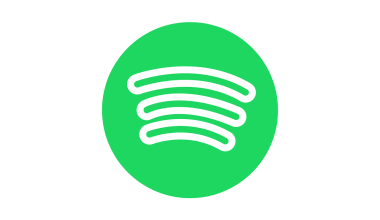The music industry can feel like an exclusive club with its own secret language. If you’re just stepping into this world, hearing terms like “royalties” or “master recordings” might make your head spin. Don’t worry; we’ve got you covered! This guide simplifies all the essential music industry terms, breaking them down so anyone can understand. Whether you’re an artist, a producer, or just a curious fan, by the end of this blog, you’ll feel like an insider.
What Is the Music Industry, Really?
The music industry isn’t just about artists recording songs or performing live. It’s an ecosystem involving multiple players who work together to create, distribute, and monetize music. Understanding the basic terms is key to knowing how it all works. So, let’s dive in!
Royalties: The Money Behind the Music
When we talk about royalties, we’re talking about the money an artist, producer, or songwriter earns from their work. There are a few types of royalties you should know:
- Performance Royalties: These are earned when your song is played on the radio, in a restaurant, or during a live performance.
- Mechanical Royalties: These come from physical or digital reproductions of your song, like CDs, vinyl records, or streams.
- Sync Royalties: When your music is used in TV shows, movies, or commercials, you’ll earn sync royalties.
Transition: But what happens if you don’t own your music?
Master Recording: Who Owns the Original?
The master recording is the original version of a song. Whoever owns the master has significant control over how the song is used—and earns the lion’s share of the profits. For example, many big-name artists have fought battles to reclaim ownership of their master recordings from record labels. Sound familiar? Think Taylor Swift.
Synonym Insight: Master rights, master copy
Record Label: Friend or Foe?
A record label is a company that helps artists produce, market, and distribute their music. In return, they take a cut of the profits. The two main types of record labels are:
- Major Labels: Like Sony, Warner, and Universal. These have big budgets and global reach.
- Independent Labels (Indie): Smaller companies that often focus on niche genres or local markets.
Transition: But do you always need a label to succeed?
DIY Artists: The Rise of Independence
Thanks to platforms like YouTube and Spotify, many artists are going the independent route (aka DIY). This means they handle their own promotion, distribution, and sometimes even production. Tools like DistroKid and TuneCore make this easier than ever. While it takes more effort, it also means keeping more of the profits.
Publishing: The Backbone of Songwriting
If you write songs, music publishing is a term you’ll hear a lot. Publishers help songwriters get paid and protect their copyrights. They also pitch songs to artists or sync opportunities (like movies and ads). Common publishing terms include:
- Copyright: Legal protection for your song, ensuring no one can use it without permission.
- Split Sheet: A document outlining who owns what percentage of a song.
Synonym Insight: Music rights, song rights
Distribution: Getting Your Music Out There
Gone are the days when you needed a deal with a big distributor to get your music in stores. Now, digital distribution platforms like CD Baby and SoundCloud Pro allow you to release your tracks worldwide. These services help your music reach Spotify, Apple Music, and other streaming platforms.
Transition: So, how do you make money from these platforms?
Streaming Revenue: The Digital Payday
Earning money from streams is one of the most common ways artists generate income today. However, the pay-per-stream rate is often very low. Here’s a quick breakdown:
- Spotify: Around $0.003 – $0.005 per stream.
- Apple Music: Slightly higher, averaging $0.01 per stream.
- YouTube: Depends on ads, but generally less than streaming platforms.
Synonym Insight: Streaming income, digital royalties
Booking Agents and Managers: Your Dream Team
A booking agent helps you land gigs, while a manager oversees your career. Managers typically take 10-20% of your earnings but can be invaluable for navigating the industry.
Transition: But what if you’re just starting out and can’t afford a team?
Networking: Your Secret Weapon
In the music industry, who you know often matters as much as what you know. Attend local shows, join online communities, and don’t be afraid to introduce yourself to industry professionals. Building relationships can open doors to collaborations, gigs, and even record deals.
Synonym Insight: Industry connections, professional network
Common Music Contracts: Read Before You Sign
Contracts are everywhere in the music world. Here are a few you’re likely to encounter:
- Recording Contracts: Agreements with record labels.
- Publishing Contracts: Deals with music publishers.
- Management Contracts: Outlines your manager’s responsibilities and payment.
Always consult a lawyer before signing anything.
Conclusion: Empower Yourself with Knowledge
The music industry might seem complicated, but understanding these terms makes it much easier to navigate. By familiarizing yourself with these concepts, you’ll not only feel more confident but also make smarter decisions for your music career. Remember, knowledge is power, especially in an industry as competitive as this one.
For further reading, explore these related articles:
- Exploring the World of Public Domain Music
- How to Distribute Your Own Music and Reach a Global Audience
For additional resources on music marketing and distribution, visit DMT Records Private Limited.






